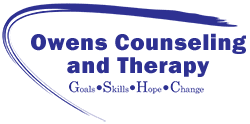
By: Carol Briggs, Clinical Intern
Attention-deficit/hyperactivity disorder (ADHD) is a neurodevelopmental disorder that impacts adults and children. It is more than just being easily distracted. In fact, those with ADHD can concentrate quite easily on things they find interesting or fascinating. This can lead to a state of hyper focus in which concentration becomes so intense that time, obligations, and even the surrounding environment are forgotten.
Those with ADHD have physical differences in their brain that result in persistent difficulty concentrating and/or a pattern of hyperactivity or impulsivity that impacts functioning in school, work, and social interactions. ADHD first manifests in childhood but before age 4, it is difficult to differentiate ADHD from normal developmental behaviors.
In childhood, symptoms of ADHD can lead to difficulties in school performance, injuries, and being labeled as “defiant”. What is often viewed as defiance can be better explained as forgetting the rules, not understanding them, or impulsively neglecting them in the moment. Only about 14% of children will outgrow symptoms of ADHD. The disorder is often chronic, and symptoms remain through adulthood. In adults, symptoms of ADHD can lead to poor work performance, increased interpersonal conflict, and being mislabeled as “lazy”.
The good news is that ADHD can be managed, and medication is effective in 80-90% of cases. Talk therapy can assist parents in building skills to address their child’s specific parenting needs in the context of ADHD. Working with a therapist can also benefit those experiencing symptoms of ADHD by learning and implementing skills related to organization, communication, and regulating urges. Therapy is also beneficial in addressing the stigma of a diagnosis and understanding it. Practicing acceptance and processing the feelings of what is being experienced can also be helpful and therapy provides a safe, supportive environment for doing so.
At Owens & Associates, we have a team of clinicians experienced in treating symptoms of ADHD. Our goal-oriented approach teaches symptom management skills for children and parents, provides support, and focuses on the individual needs of each client. Call us at (847) 854-4333 for a free 15-minute phone consultation today to see if our individual, family, couples, or group services are right for you.
